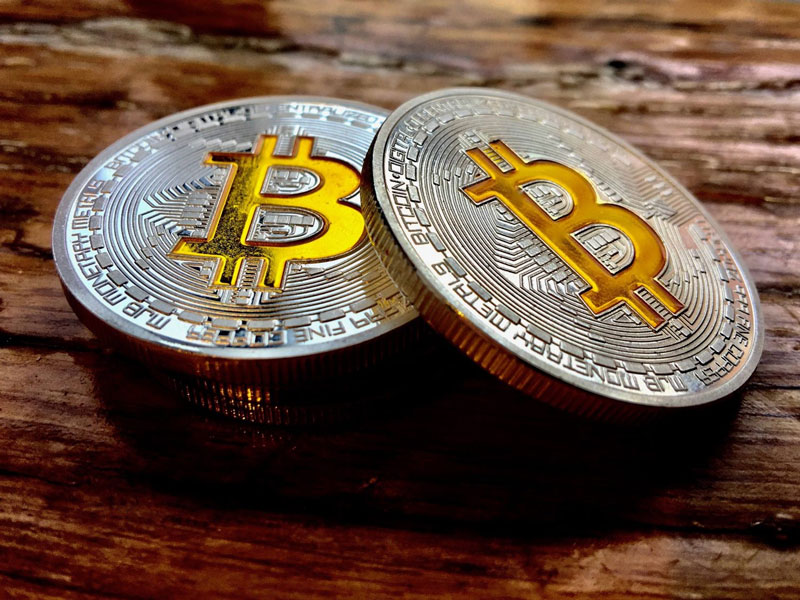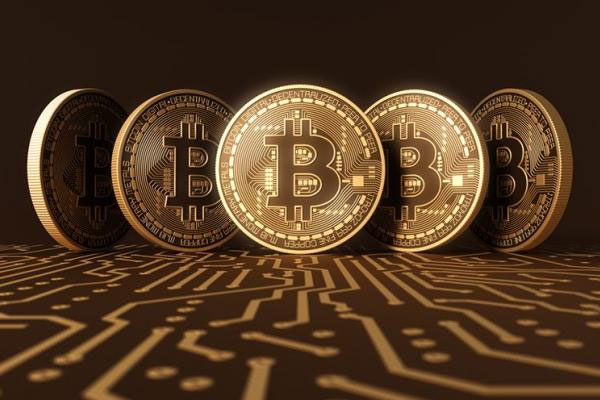What is Bitcoin? Who Created It? How Does It Work? And a Lot More
Jan 08, 2024 By Triston Martin
What is Bitcoin? Bitcoin is a type of currency conceived by Satoshi Nakamoto in 2009. The currency was developed as open-source software and can be used without monetary authorities. There are no banks, governments, or other central institutes governing the circulation of bitcoins. Users acquire bitcoins online through "mining" or buying them from exchanges. It is an entirely virtual currency. Bitcoin wallets store the private keys you need to access a bitcoin address and spend your funds. They come in different forms, designed for different types of devices. Some are software-based, and some are hardware-based (more secure).

Who Created Bitcoin?
After getting an answer to What is Bitcoin? Another question that people ask is that who created it? Satoshi Nakamoto developed the concept and all code associated with bitcoins. In 2008, Nakamoto published a paper that described bitcoin's basic principles. In 2009, he coded and released this concept as open-source software. He also created the first bitcoins – giving people an incentive to participate in the project earlier. The value of bitcoins has been growing rapidly since then, and now it is accepted in an increasing number of retail stores, restaurants, and online businesses.
Nakamoto's growth in popularity prompted Australian programmer Craig Wright to claim he was the bitcoin inventor in May 2016. However, this has not been proved. Regardless of who created it, bitcoins are now traded by hundreds of exchanges worldwide (over 100000 according to one estimate) and can be used by anyone in exchange for goods or services.
Who Controls Bitcoin?
All Bitcoin users around the world control Bitcoin. The network is maintained by computers that are running mining software. These computers secure the network and authenticate transactions when they send information to the network. The network agrees on all transactions, so they cannot be altered. This means that people can exchange things of value without a middleman (like a bank) and without giving away their personal information. Bitcoin is currently in its early stages, but it has already made notable impacts on modern society. It remains to be seen where the cryptocurrency will go next.
What's A Bitcoin Worth?
The value of a single bitcoin can vary massively depending on the date and location. In 2010, one US Dollar was worth as little as 1,309 bitcoins, but in December, it hit highs of $19132. As with any currency, the actual exchange rate varies from place to place – sometimes even from building to building.
In May 2017, the value of one bitcoin was £1572 ($2295). The price has been growing rapidly recently, and there is a strong demand for bitcoins. People are buying them in order to sell them later on at a higher price. Over 100000 retail stores and restaurants worldwide have started accepting bitcoin payments, including Microsoft, Dell, and Subway. Today as of Dec 2021, it is worth $47778.
The more popular bitcoin becomes, the higher its price will be, so there is no way of knowing what it might cost in the future. However, bitcoins are becoming increasingly valuable over time, which means they are becoming an attractive investment opportunity.
How Does Bitcoin Work?
Bitcoins are stored in a digital wallet, either in the cloud or on a user's computer. In a wallet, users may transfer and receive bitcoins, make purchases, and save their funds. People can also use e-currencies like Bitcoin to buy goods and services (such as web hosting and advertising).
The coins are made by people who "mine" them by giving up their computing power to check other people's transactions. They get bitcoins in exchange for giving them their money back. The coins also serve as a record of the transactions taking place, with each new transaction broadcast across the network and recorded in public 'blockchain.'

The blockchain is run by miners, who use powerful computers that tally the transactions. Their work is rewarded with more bitcoins. Mining has become so competitive that it can only be done profitably with a special piece of hardware called an ASIC miner, which costs about £3000. The first successful 'blockchain' was created in 2009, and people were able to mine 50 coins every 10 minutes – worth around $700 at the time.
In the early days, one bitcoin was worth less than a penny, but in 2010 its value soared to $22 when a Florida computer programmer paid for two pizzas with 10,000 bitcoins. Several other cryptocurrencies have been created that can also be mined using specialized hardware in recent years. So there is now an alternative way to obtain virtual money that doesn't involve mining. Some cryptocurrencies, such as Litecoin and Monero, are popular because they offer greater privacy than Bitcoin (although the original cryptocurrency is designed for transparency).
How Can You Buy Bitcoins?
Several marketplaces are known as 'bitcoin exchanges' where people can buy or sell bitcoins using different currencies. Mt Gox is one of the biggest Bitcoin exchanges. People can also buy bitcoins from friends or strangers, with a mobile number and a cash deposit being the most obvious ways to do so.
People buy coins at cryptocurrency ATMs – machines that accept cash and convert it into Bitcoin or another type of cryptocurrency. Europe is catching up slowly on this ATM front, but North America is further ahead with dozens of machines in the US and Canada. In some countries, such as China, getting bitcoins is also possible by accepting them as payment for goods or services.
What Will Be the Worth of Bitcoin In 2022?
Despite being considered a risky investment; bitcoin prices have been growing rapidly recently. What affects its price on a particular day? People often compare it to gold when they try to understand the value of a bitcoin, but this isn't an accurate comparison. Gold has been widely used as a means of exchange for more than 100 years, and its price is much higher than that of a bitcoin in dollar terms.
What's important to remember is that there are only a limited number of bitcoins available – and, as more people use them, the price will go up. The prices of many cryptocurrencies have been on a rollercoaster recently as speculators get in on the act. However, they will hit the ceiling at some point even if demand continues to increase because there won't be enough around. As most new crypto investors ask, what is bitcoin?
Conclusion
The rise of Bitcoin has triggered a discussion about it and other cryptocurrencies' futures after getting to know about What is Bitcoin? Ethereum, Litecoin, as well as Ripple were all developed out of Bitcoin's initial success in 2009, despite its more recent problems. If a cryptocurrency wants to join the mainstream financial system, it must meet several conditions. However, there is no doubt that Bitcoin's success or failure through dealing with the problems it faces could have a big impact on how other cryptocurrencies do in years to come.







